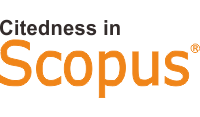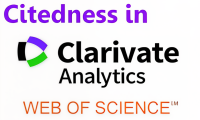Online Donation for Charitable Giving: The Case of Yayasan Kebaikan Ummat
DOI:
https://doi.org/10.46870/milkiyah.v3i1.848Keywords:
Online Donations, Sharia Economic Law, FundraisingAbstract
The burgeoning trend of online donations has assumed prominence within society. This research endeavors to elucidate the intricacies involved in the collection, management, and distribution of online donation by Yayasan Sinergi Kebaikan Ummat. It seeks to identify the contractual frameworks employed in the online donation process, while also examining the legal dimensions of online donations through the lens of Sharia Economic Law. The type of this research is qualitative. Data collection techniques encompass indirect observation, interviews, and documentation review. The data analysis is underpinned by the premise that muamalah activities, whether conducted directly or indirectly, are permissible unless explicitly proscribed. The legal framework governing muamalah derives from the Qur'an and Hadith, which establish the principles congruent with Sharia, aimed at fostering societal justice. The findings of this research reveal that Yayasan Kebaikan Ummat, acting as a campaigner, assumes the role of a third-party intermediary in the donation process. Here, the donor represents the first party, while the online platform serves as the second party. The process of raising donations involves several contractual arrangements, including ijarah, wakalah bil ujrah, and jualah contracts, all of which entail the provision of wages (ujrah). The administration fee established by the platform, termed ujrah, serves as compensation for the campaigner's fundraising assistance. Consequently, online donations facilitated through these platforms are permissible, primarily due to the incorporation of the tabarru' contract within the arrangement.
References
Aziz, I. A., Nurwahidin, N., & Chailis, I. (2019). Faktor-Faktor Yang Mempengaruhi Masyarakat Menyalurkan Donasi Melalui Platform Crowdfunding Berbasis Online. Jurnal Syarikah : Jurnal Ekonomi Islam, 5(1), 94–108. https://doi.org/10.30997/jsei.v5i1.1835
Bagus, S. H. (2015). Infaq Dalam Tafsir Al- Qur ’ an Surat Al -Baqarah. Islamic Banking, 1(1), 59–67.
BPK. (1999). Undang-Undang Republik Indonesia Nomor 38 Tahun 1999 Tentang Pengelolaan Zakat. https://peraturan.bpk.go.id/Details/45359/uu-no-38-tahun-1999
BPK. (2004). Undang-Undang Republik Indonesia Nomor 41 Tahun 2004 Tentang Wakaf. https://peraturan.bpk.go.id/Details/40788/uu-no-41-tahun-2004
BPK. (2006). Peraturan Pemerintah Republik Indonesia Nomor 42 Tahun 2006 Tentang Pelaksanaan Undang-Undang Bomor 41 tahun 2004 tentang Wakaf. https://peraturan.bpk.go.id/Details/49182/pp-no-42-tahun-2006
BPK. (2011). UU RI Nomor 23 Tahun 2011 tentang Pengelolaan Zakat. https://peraturan.bpk.go.id/Details/39267/uu-no-23-tahun-2011
Bruton, G., Khavul, S., & Chavez, H. (2011). Microlending in Emerging Economies: Building a New Line of Inquiry from the Ground Up. Journal of International Business Studies, 42(5), 718–739. https://doi.org/10.1057/jibs.2010.58
Chundong, Z, Yiran, Z., Heming, G & Jiaxin, Lv (2024). No browsing, no donating: impact of image emotion and colour on browsing intention in online charitable fundraising, Behaviour & Information Technology, https://doi.org/10.1080/0144929X.2024.2314249
Faozi, M. M. (2016). Manajemen Dana Tabarru’ Pada Asuransi Takaful Cabang Cirebon. Jurnal AL-Mustashfa, 4(2), 144–157. https://doi.org/DOI: 10.24235/jm.v4i2.1200
Fauzan, A. (2016). Prinsip Tabarru’ : Teori dan Implementasi di Perbankan Syariah. Al-Amwal, 8(2), 400–411. https://doi.org/DOI: 10.24235/amwal.v8i2.1115
Gao, G & Shi, X. (2024). Beliefs, observability and donation revision in charitable giving: evidence from an online experiment. Behavioural Public Policy. https://doi:10.1017/bpp.2023.36
Hemer, J. (2011). A snapshot on crowdfunding, Arbeitspapiere Unternehmen und Region, No. R2/2011, Fraunhofer-Institut für System- und Innovationsforschung ISI, Karlsruhe
Hermawan, D., Kurnia, A. D., & Sucipto, M. C. (2020). Analisis Pengelolaan Dana Tabarru (Asuransi Jiwa Syariah) dalam Produk Pembiyaaan di BMT Mardhatillah Berkah Karawang. EKSISBANK: Ekonomi Syariah Dan Bisnis Perbankan, 4(1), 39–48. https://doi.org/10.37726/ee.v4i1.106
Ichsan, N. (2016). Akad Bank Syariah. Jurnal Ilmu Syari’ah Dan Hukum, 50(02), 399–423. https://doi.org/10.14421/ajish.v50i2.237
Ifham, A. (2015). Ini Lho Bank Syariah! Memahami Bank Syariah dengan Mudah. Jakarta: PT Gramedia Pustaka Utama.
Juwaini, A. (2005). Panduan Direct Mail untuk Fundraising. Jakarta: Piramedia.
Lestari, W., Checathia, I. W., Immanuel, J., Ade, D., Capah, H., & Wina Checathia, I. (2022). Penyaluran Donasi Untuk Korban Bencana Alam Berbasis Website(Studi Kasus: Pecinta Anak Yatim & Doeafa Indonesia Tercinta). Jurnal Ilmiah Betrik, 13(01), 8–17. https://doi.org/10.36050/betrik.v13i1.405
Ngafifi, M. (2014). Kemajuan Teknologi Dan Pola Hidup Manusia Dalam Perspektif Sosial Budaya. Jurnal Pembangunan Pendidikan: Fondasi Dan Aplikasi, 2(1), 33–47. https://doi.org/10.21831/jppfa.v2i1.2616
Qoyyim, S. H., & Widuhung, S. D. (2020). Analisis Strategi Penyaluran Dana Zakat, Infak, Sedekah (ZIS) dan Tingkat Inflasi Terhadap Pertumbuhan Ekonomi Di Indonesia Pada Periode 2015-2019. Jurnal Al Azhar Indonesia Seri Ilmu Sosial, 1(2), 53–62. https://doi.org/10.36722/jaiss.v1i2.460
Rachman, M. A., & Nur Salam, A. (2018). The Reinforcement of Zakat Management through Financial Technology Systems. International Journal of Zakat, 3(1), 57–69. https://doi.org/10.37706/ijaz.v3i1.68
Rachmasari, Y., Nulhaqim, S. A., & Apsari, N. C. (2016). Penerapan Strategi Fundraising Di Rumah Singgah Bina Anak Pertiwi, Jakarta. Prosiding Penelitian Dan Pengabdian Kepada Masyarakat, 3(3), 363–369. https://doi.org/10.24198/jppm.v3i3.13779
Rafsanjani, H. (2016). Akad Tabarru’ Dalam Transaksi Bisnis. Jurnal Perbankan Syariah, 1(1), 101–129. https://doi.org/10.30651/jms.v1i1.758
Sari, N. R., Bulutoding, L., Aditiya, R., & Jannah, R. (2020). Equity Crowdfunding for SMEs: Sharia Compliance Challenge amid the Covid-19 Pandemic. Jurnal Iqtisaduna, 6(2), 198–213. https://doi.org/10.24252/iqtisaduna.v6i2.19037
Sari, S., & Lubis, F. A. (2021). Analisis Pengelolaan Zakat, Infak, Dan Sedekah (ZIS) untuk Meningkatkan Ekonomi Duafa (Studi Kasus di Lembaga Amil Zakat Al-Washliyah Beramal Sumatera Utara, Medan). Jurnal Penelitian Administrasi Publik, 1(04), 74–83.
Sespiani, K. A., Apilia, M., & Miftajanna, S. (2021). Studi Literatur Pelaksanaan Crowdfunding Oleh Public Figure Melalui Platform kitabisa.com. JKOMDIS : Jurnal Ilmu Komunikasi Dan Media Sosial, 1(2), 84–96. https://doi.org/10.47233/jkomdis.v1i2.38
Sheikhzadeh, M. A., Taghavifard, M.T, Raeesivanani, I., & BamdadSoufi , J. (2024). Model for Online Donation Intention for Crowdfunding of Charities in Iran. Business Intelligence Management Studies, 12(47), 1-31. https://doi.org/10.22054/ims.2023.74147.2342
Shepelenko, A., Shepelenko, P., Panidi, K., Kosonogov, V., & Shestakova, A. (2024). How the emotions evoked by homeless pets induce online charitable giving. Journal of Philanthropy and Marketing, 29(2), e1842. https://doi.org/10.1002/nvsm.1842
Sitepu, N. I. (2017). Tinjauan Fiqh Mu’Amalah: Pengetahuan Masyarakat Banda Aceh Mengenai Akad Tabarrū’ Dan Tijārah. Journal of Chemical Information and Modeling, 1(1), 89–99.
Siyoto, S., & Sodik, M. A. (2015). Dasar Metodologi Penelitian. Sleman:Literasi Media Publishing.
Stoffel S.T, Chaki, B., Vlaev, I. (2024) Testing a decoy donation incentive to improve online survey participation: Evidence from a field experiment. PLoS ONE 19(2): e0299711. https://doi.org/10.1371/journal.pone.0299711
Sudarwati, Y., & Sayekti, N. W. (2011). Konsep Sentralisasi Sistem Pengelolaan Zakat Dalam Pemberdayaan Ekonomi Umat. Jurnal Ekonomi & Kebijakan Publik, 2(1), 559–584. https://doi.org/10.22212/jekp.v2i1.100
Suharto, T., & Sudiarti, S. (2022). Analisis Jenis–Jenis Kontrak Dalam Fiqh Muamalah (Hukum Islam). Mumtaz : Jurnal Ekonomi Dan Bisnis Islam, 1(2), 93–104. https://doi.org/10.55537/mumtaz.v1i2.184
Witasari, A., & Abdullah, J. (2014). Tabarru” Sebagai Akad Yang Melekat Pada Asuransi Syariah. BISNIS : Jurnal Bisnis Dan Manajemen Islam, 2(1), 115–129. https://doi.org/10.21043/bisnis.v2i1.5253
Downloads
Published
How to Cite
Issue
Section
License
Copyright (c) 2024 Milkiyah: Jurnal Hukum Ekonomi Syariah

This work is licensed under a Creative Commons Attribution-NonCommercial 4.0 International License.

















